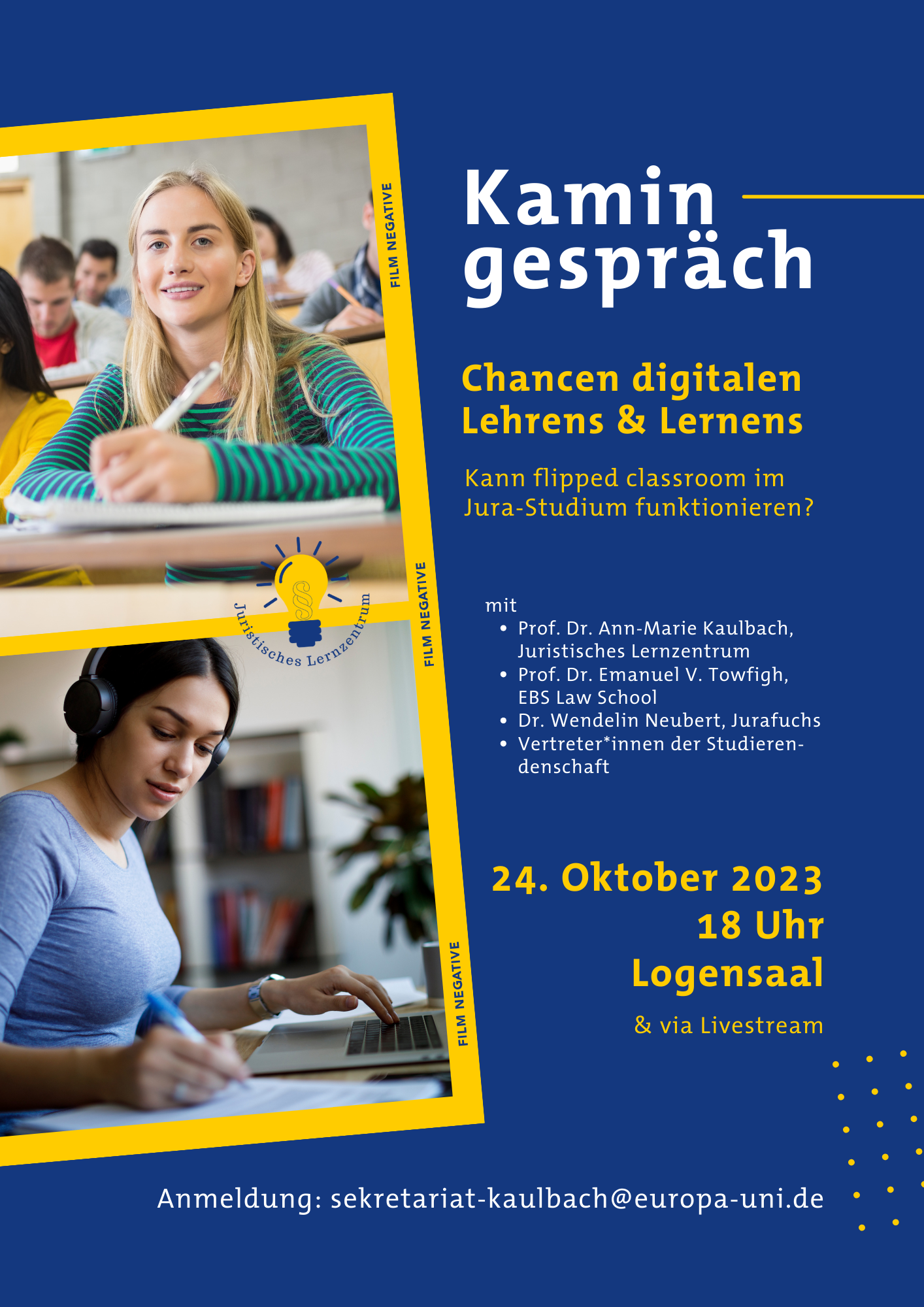On October 24, 2023, a fireside chat with Prof. Dr. Ann-Marie Kaulbach, Dr. Wendelin Neubert, Prof. Dr. Emanuel V. Towfigh and students on the topic »Opportunities of digital learning and teaching«: Can flipped classroom work in law studies?, took place at the European University Viadrina Frankfurt (Oder).
Learning research has known for a long time that the combination of traditional teaching methods – lectures and classroom-based courses as well as textbooks or scripts – with digital learning materials – so-called “blended learning” – leads to significantly better learning outcomes than the isolated use of traditional teaching methods. This realization is also slowly finding its way into law studies: 📚+👩🏫+🖥️+📱 ➡️ 🏆
According to the findings of learning research, the most effective form of blended learning is the »flipped classroom« concept: up to now, the »classroom«, i.e. the lecture or study group, has mainly been used for the initial teaching of learning material – in the subsequent self-study, the students should then apply (learn) what they have learned in this way. In the »flipped classroom«, this distribution is reversed: students should first acquire the learning material in self-study – so that they can then apply (learn) the material in the »classroom«, i.e. in the lecture or study group, with the professor. High-quality digital learning materials are particularly suitable for self-study for the initial teaching of learning content.
Why is this teaching and learning approach more effective? Because the valuable time spent with the extremely well-trained teachers is not spent on teaching basic knowledge that students can confidently read on their own, but rather on the most important part of the learning process: the application and thus the consolidation of what has been learned.
But can this approach also work in law studies? One key challenge is that the application phase requires students to be able to interact with the professors in order to actually apply what they have learned through self-study. This can be difficult in a lecture hall with 300 fellow students. But students must also be prepared to come to the lecture well prepared. A third problem: The digitalized learning materials that are supposed to provide effective learning support during self-study must be excellent in terms of didactics and content and at the same time implement the advantages of digitalized learning materials.
